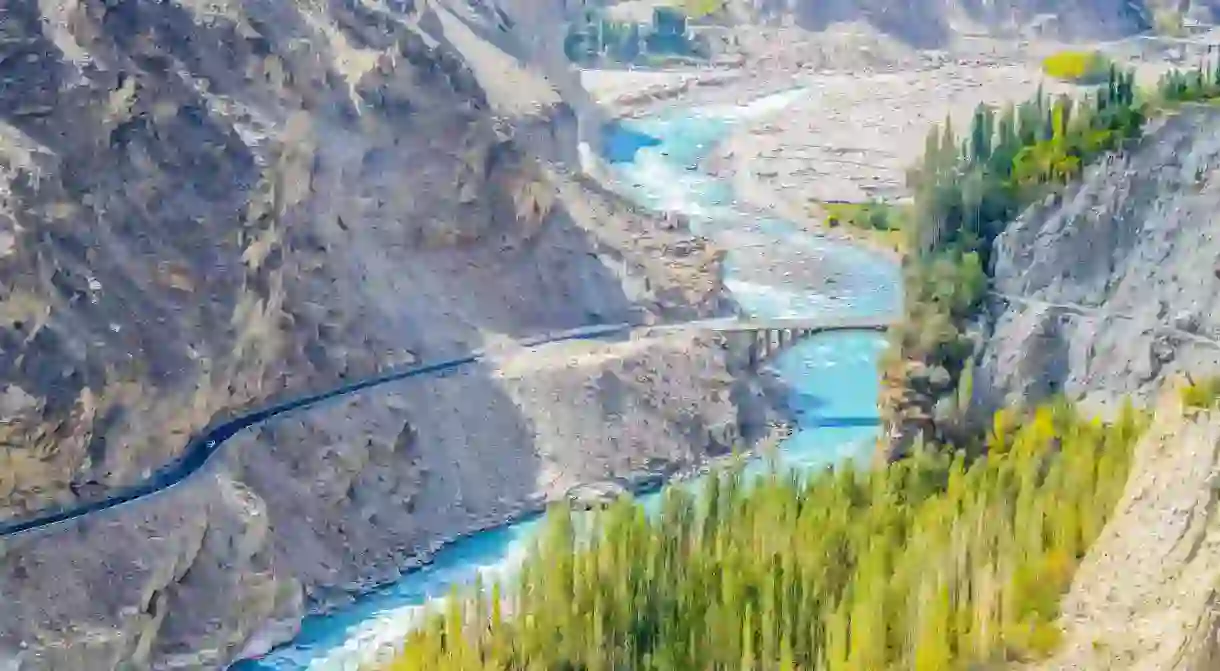Fascinating Facts About Pakistan

With a vibrant culture, giant population and fascinatingly diverse range of natural splendor, Pakistan is one of the most interesting countries you could visit. Here are some of our favourite unique aspects of Pakistan, all of which add richness and beauty to our world.
Did you know you can travel with Culture Trip? Our small-group trips are authentic, culturally-immersive adventures that take you right to the heart and soul of the world’s most thrilling destinations.
One of the world’s earliest and largest civilizations flourished in the region
The Indus Valley Civilization, which blossomed around the Indus river and delta, is one of the world’s oldest societies, whose traces in the form of constructions, relics and fossils are preserved today at the site of their cities and in many museums around the world. The Indus civilization – peak population five million – was one of the earliest three civilizations of the old world, along with the ancient Egyptians and Mesopotamians, the Indus being the most widespread. It was comprised of dozens of well-planned cities and towns with baths, urban drainage and water supply systems, and many large nonresidential buildings grouped together, indicating government systems. The locals of the valley invented new types of handicrafts and metallurgy, many of which were still intact when excavated along with children’s toys and a few weapons.
Home to the youngest Nobel Laureate
Pakistan’s pride Malala Yousufzai is the youngest Nobel Prizewinner in the world, having been awarded the honor for championing universal education, even after being shot by the Taliban at the age of 15 for reporting on the situation of girl’s education in her city. Shot on the way to school, Malala was brought to hospital in Birmingham after being briefly treated in Pakistan for the critical head injury and fortunately went through a miraculous recovery. She is currently studying at Oxford while continuing her work for the rights of children to gain education.
Home to the second highest mountain K2, third highest Tirich Mir and the three highest mountain ranges in the world
Pakistan’s killer K2 (or Godwin Austin) is the world’s second highest peak, and is part of the Greater Himalaya Mountain range also known as the Karakoram Range, which extends into China and India. The world’s third highest (Tirich Mir) is also found in Pakistan’s Hindu Kush Range. This way, three of the world’s highest mountain ranges – the Himalaya, the Greater Himalaya and the Hindu Kush are all found in Pakistan, making it a premier destination for serious mountaineers and winter sport professionals.
The world’s largest deep sea port
Pakistan’s superior position in Asia makes it a center of trade in the region, something that’s expected to increase further in the coming years as the country works hand in hand with China on a CPEC plan to develop the infrastructure of the Gwader port at Arabian Sea, Balochistan, which is the largest natural deep port of the world. The port will act as a portal for western China and possibly for the landlocked central Asian countries through the important sea route of the strait of Hormuz.
World’s highest paved road
Also called the eighth wonder of the world, or the China-Pakistan friendship highway, the Karakoram Highway is the highest road ever built. The road runs for 800mi (1,287km) from Abbottabad in Pakistan to Kashgar in Xinjiang, West China. The highest point of the road lies at the Khunjerab Pass at 4,800m (15,748ft). Every turn of the highway is accompanied by incredible views as the path runs though hills, mountains, valleys, glaciers and along lakes and rivers.
The largest volunteer ambulance service in the world
Pakistan’s Edhi Foundation proudly runs the world’s largest volunteer ambulance service, which is a record that has been held by Pakistan since 1997. Headquartered in Karachi, the foundation runs a 24 hour emergency ambulance service, as well as providing other services like shelter for the homeless, free health care, drug rehabilitation, orphanage and adoption services, and local and international disaster relief. In 2005 the foundation donated $100,000 in aid for the relief efforts of Hurricane Katrina. Started by the late Abdul Sattar Edhi as a single room shelter, the foundation now operates over 300 centers throughout Pakistan.
Pakistan’s Sialkot produces over half the world’s footballs
It was the British back in the days of colonial rule who grew impatient with the waiting time for the shipments of footballs, and so tried out local repairs for punctured balls. Pleased with the results, they placed some manufacturing orders, which kick-started an industrial journey to becoming the largest football-producer in the world today.
The fourth largest irrigation system in the world
Since most of Pakistan’s population depend on a livelihood in agriculture, the country had to develop a complex (and massive) system of irrigation to cultivate 202,000 sqkm of land. The system runs on the Indus Basin.
World’s second largest salt mines
Khewra Mines of Pakistan produce 325,000 tons of salt per year and are fabled to be discovered by Alexander’s Army through chance when their horses began licking the salts while troops rested, thus resulting in the discovery of the modern world’s second largest salt mine. The mammoth mines have over 24mi (40km) of tunnels along with their own mosque inside. Salty miniature versions of the Great Wall of China, Minar-e-Pakistan and Badshahi Mosque are also found inside.
The highest polo ground in the world
Located at Shandur Top is the highest polo ground at 3,700m (12,139ft), where the traditional game of polo was started by Balti Prince Ali Sher Khan. Held annually since 1936, the Shandur Polo Festival is a tournament between local teams that invites visitors to view the game along with shows of folk music, dance and celebration. The tournament is featured in the opening episode of The Himalayas with Michael Palin.













